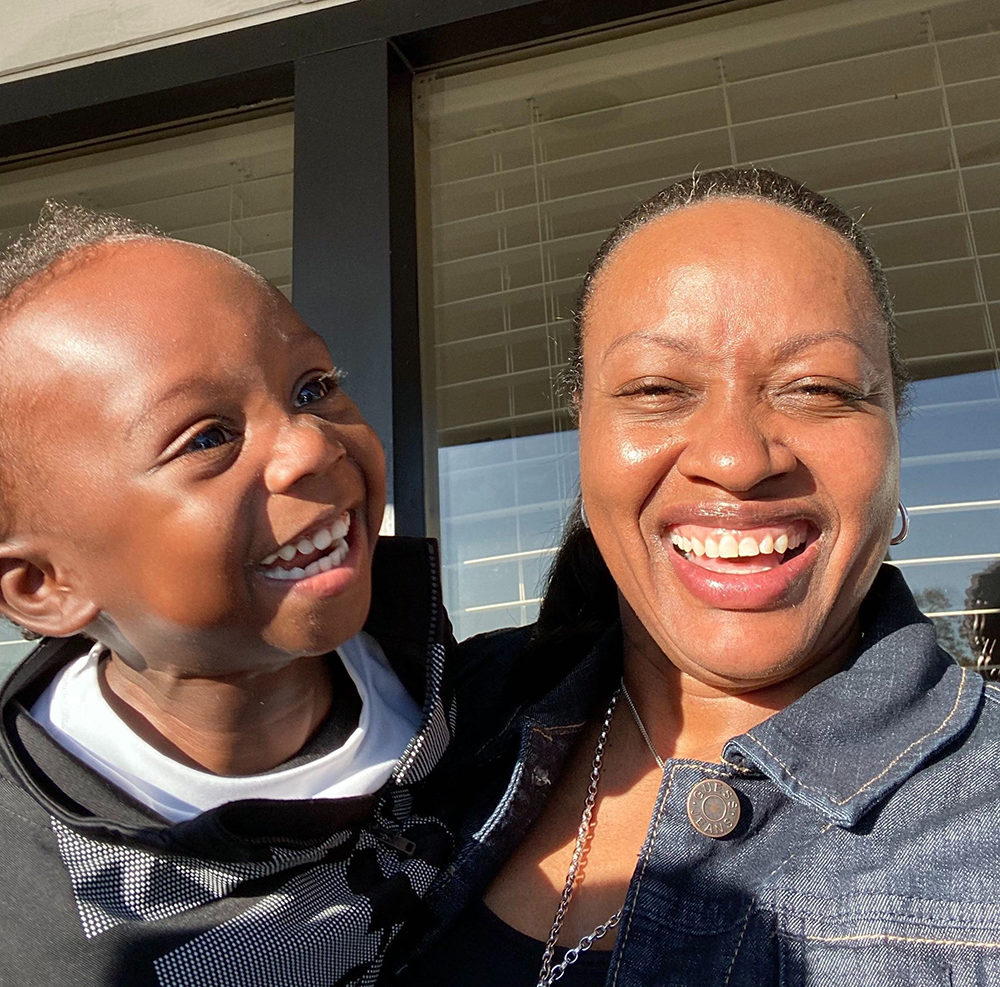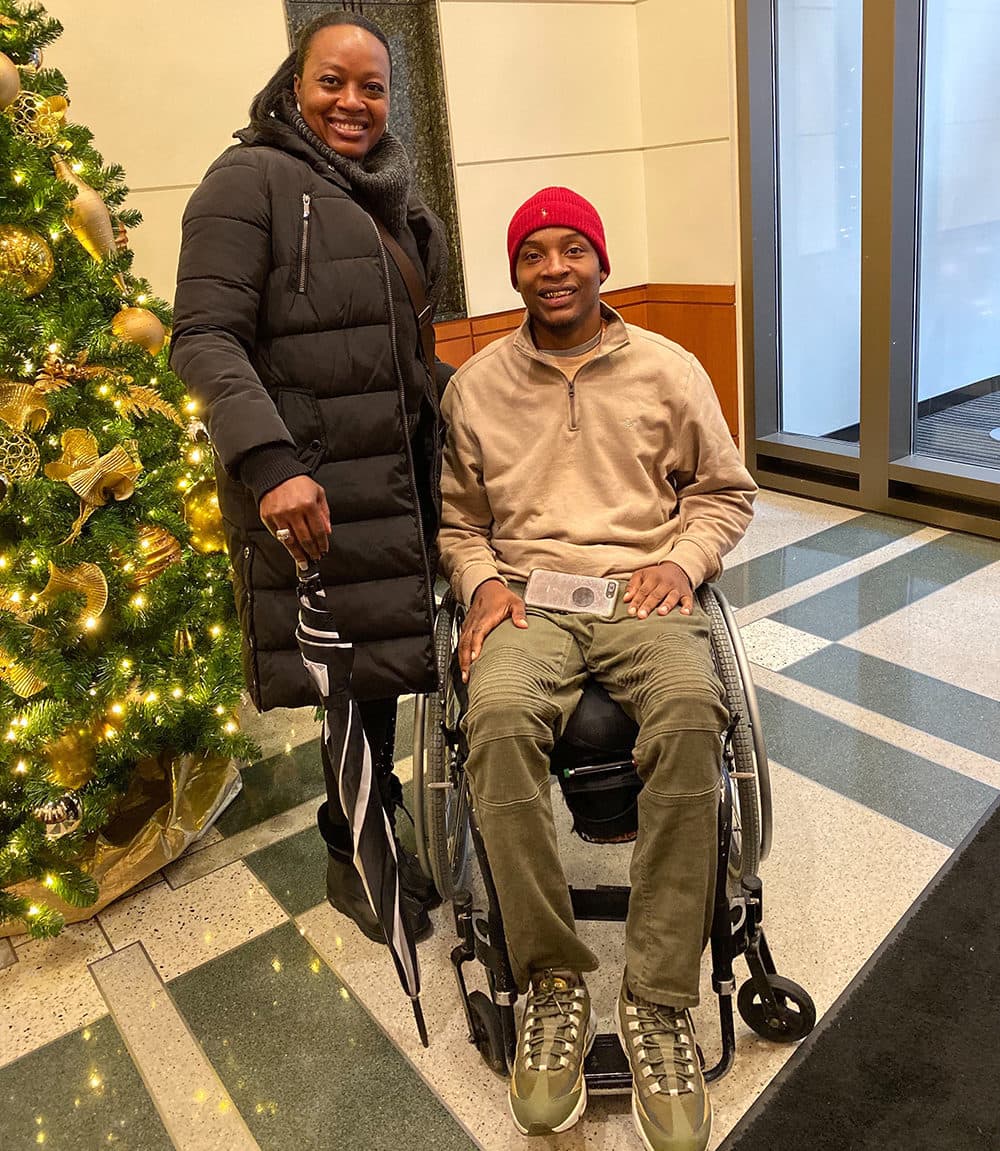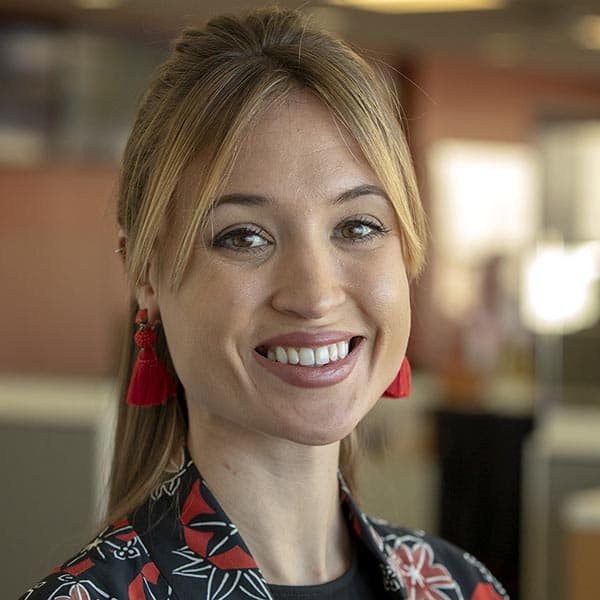Advertisement
Released From Prison Under The First Step Act, Tanesha Bannister Celebrates 1st Christmas With Family In 16 Years
Resume
This holiday season marks Tanesha Bannister’s first Christmas with her family in 16 years.
In 2004, Bannister received a life sentence for conspiring to sell 50 grams of crack and five kilograms of cocaine. At the time, she was a 28-year-old single mom — leaving behind her son, Abel, 8, and daughter, Ava, 10.
In 2008, she appealed her sentence and got it reduced. But her second chance came this year when Bannister was freed along with some 3,000 former federal inmates under the First Step Act.
“I felt like I wanted to kiss the ground,” Bannister says of the moment she walked out of prison. “It’s like different air that you breathe.”
President Trump signed the First Step Act, a rare piece of bipartisan legislation, at the end of 2018. The First Step Act seeks to redress harsh laws that affected Bannister and thousands of other African Americans disproportionately.
The ‘100-to-1’ rule, for example, required a five-year mandatory minimum sentence for trafficking in 500 grams of powder cocaine or five grams of crack. In 2010, Congress passed the Fair Sentencing Act, which eliminates the crack versus cocaine discrepancy — years after Bannister was sentenced.
The First Step Act, among other reforms, applies the Fair Sentencing Act retroactively, meaning Bannister and other prisoners who were sentenced before 2010 are now eligible for release.
Now, thousands of former inmates like Bannister are adjusting to lives that haven’t waited for them: Older relatives have died while children have grown up. Nevertheless, Bannister says, being able to sit at the Christmas dinner table with her family, including a 2-year-old grandson, is an “indescribable” feeling. But she knows her absence left a scar.
“As you know, things trickle down when things happen to one person in the family such as myself,” she says. “It was like my family was doing time with me.”
Bannister says she kept in close contact with her kids, trying to counsel them from behind bars over 15-minute collect calls, so they wouldn’t make the same mistakes she did.
Her protective instincts could only stretch so far. In 2016, her youngest, Abel, was shot and paralyzed from the chest down. It was a mother’s worst nightmare, but Bannister says her children bear her no ill-will for not being there.

On the day she got out of prison, May 1, Bannister says all she wanted to do was call her kids uninterrupted by a beep. She wanted to “bask in the glory and joy” she could feel traveling across the state lines between Bryan, Texas, where she was incarcerated, to Columbia, South Carolina — her home.
Since then, Bannister has found work as a personal trainer and caretaker for the elderly and disabled. At one point, she was also doing hair with a cosmetology license she earned while incarcerated, but says she “didn’t find that too interesting.” She likes being a personal care assistant because it allows her to take care of others after being helpless while incarcerated for so long.
Bannister knows she’s lucky to have work. She says many former inmates are desperate to become productive members of society and work an honest job, but often face serious stigma in getting hired.
“It’s not that we come outside and look for a handout,” she says. “We only sometimes need that hand up.”
Bannister believes Trump understands the concept of a hand up. Along with his son-in-law, Jared Kushner, the president made the First Step Act one of his signature reforms.
Advertisement
Earlier this year, Bannister had the opportunity to meet Trump at a rally in South Carolina. She says she knows people have “mixed feelings” about the president, but that “shaking his hand, and he’s kissing me on the cheek, saying that he would back me in any endeavor that I want to embark on was just an amazing feeling.”
She says she’s deeply grateful to Trump and the other legislators that helped pass the First Step Act. She says she’s even grateful to her judge, who both sentenced her to life in prison and signed her release.
“At that time she was doing her job, she was standing on the right side of the law. And when the First Step Act passed, she was still standing on the right side,” Bannister says, adding that without prison, she would have never reached her full potential.
But, she says she wishes more people on the outside understood one thing: There are good people in prison who deserve a second chance.
“You have to keep those people in mind as humans,” she says, “because often times we are dehumanized by the crimes we commit or the perception of who we are.”
This segment aired on December 25, 2019.

